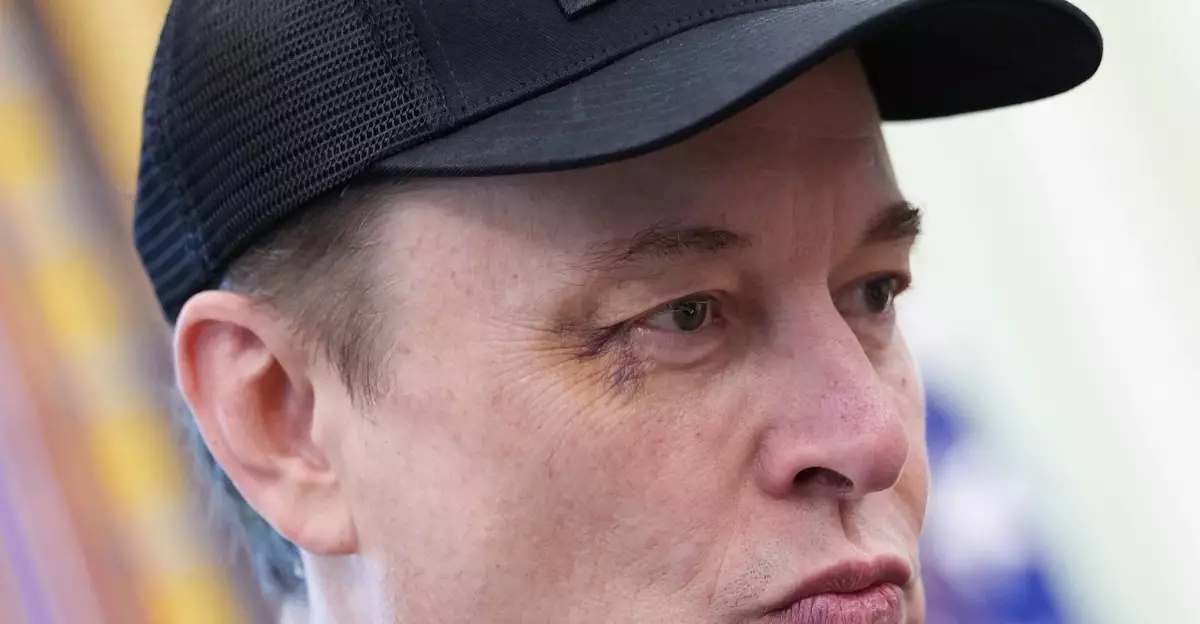Elon Musk, a figure frequently surrounded by both admiration and criticism, recently concluded his tenure at the Department of Government Efficiency (DOGE). His departure has left analysts and enthusiasts pondering the future trajectory of this controversial initiative. Musk’s exit comes at a time when his companies, particularly Tesla, are grappling with declining sales and a tarnished public image. His assertion that DOGE will continue to thrive even without his leadership paints an optimistic picture, yet one must question the sustainability of this optimism in light of the documented challenges he leaves behind.
In this politically charged atmosphere, Musk’s experiences during his five-month stewardship of DOGE have become a mixed bag, revealing the complexities of government reform. His commitment to reducing “waste, fraud, and abuse” claims to have created massive savings for the government. However, an array of research suggests that many of his initiatives may have had unintended consequences. The detachment from humanitarian aid funding, linked to a staggering toll of 300,000 lives lost, primarily among children abroad, illustrates the high stakes of his managerial decisions. This grievous outcome casts a long shadow over the narrative of success that Musk passionately promotes.
The Tesla Dilemma: A Company in Flux
Simultaneously, Musk’s flagship company, Tesla, is navigating uncharted waters. The company has reported its first quarterly sales decrease in almost five years, raising alarms not only for investors but also for the brand’s famed reputation. This decline signals a potential shift in consumer perception, as dissatisfaction towards Musk among U.S. residents climbs. The juxtaposition of his ambitious claims with the sobering reality of economic performance creates a scenario rife with tension, calling into question his effectiveness as a leader in both the corporate and governmental realms.
The turmoil surrounding Tesla has reportedly prompted its board to consider the appointment of a new CEO, an action that would mark a significant turn for the company founded by Musk. As the public grapples with their fluctuating sentiment toward him, it remains unclear whether Musk can maintain his dual roles as an innovator and public figure. His semi-comedic portrayal of intense parental experiences in front of the press—a black eye allegedly from a playful interaction with his son—serves as a reminder that even titans of industry are not immune to the pressures of everyday life.
Critical Reception of DOGE’s Legacy
As the dust settles from Musk’s time with DOGE, the initiative’s legacy will undoubtedly be scrutinized. Despite Musk’s claims of cutting down expenses by a staggering $160 billion, experts argue that the actual figure could be significantly lower. Additionally, the organization’s reported inefficiencies, including a culture of firing and re-hiring, coupled with increased administrative overhead, could have potentially drained public resources to an extent higher than the savings they purported. The Partnership for Public Service has suggested that these internal issues may have already led to losses amounting to over $135 billion, further complicating Musk’s narrative of success.
Moreover, the ideological framework that Musk attempts to position around DOGE—describing it as a “sort of Buddhism” or a “way of life”—raises eyebrows. The romanticism of government reform, while compelling, often obscures the hard-nosed realities of bureaucratic inefficiency. This dual narrative may reflect Musk’s desire to cultivate a lasting impact, transcending monetary savings towards a more philosophical vision of operational excellence. Nonetheless, without substantive results to back it up, such grandiose claims risk being dismissed as mere rhetoric.
Musk’s Mixed Message: Hope Versus Reality
During his press appearance alongside President Trump, Musk received a highly visible accolade in the form of a golden key, symbolizing his supposed contributions. Yet the accompanying political flattery juxtaposes sharply with the stark reality of his recent setbacks. This duality encapsulates the broader tension felt by many stakeholders invested in Musk’s ventures: admiration for his visionary ambitions often clashes with the tangible consequences of his actions—or inactions.
While Musk expresses confidence in DOGE’s ongoing mission, the effectiveness of that mission amid mounting challenges remains to be seen. In a world where innovation is sequentially matched by accountability, the lessons gleaned from this chapter of Musk’s career may offer insights into the complexities of achieving meaningful reform within government—a domain that differs drastically from the rapid-fire environment of Silicon Valley. The stakes are high, and time will tell if DOGE can truly endure and adapt beyond the shadow of its controversial leader.


Leave a Reply